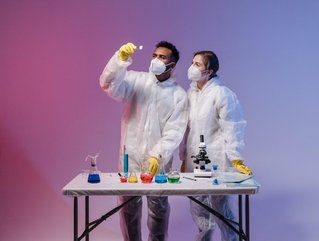Clinical trials and tribulations: Securing the future

The procurement difficulties that have been brought about by the pandemic have affected every industry. Billions of people had no access to medical care that fell outside the ‘covid-related’ category for nearly two years. This means the most common diseases, cancers; coronary heart disease; stroke; pneumonia; diabetes and alzheimers were left essentially untreated or unmanaged during this time.
The setback in global healthcare has been immense and perhaps as yet immeasurable in terms of its true scope. What is known is that an exponential increase in healthcare risks due to an original healthcare crisis must be avoided at all costs.
For this to happen, clinical trials have to be protected, since the progress of healthcare and the development of new and more effective medicines rely on them, and for clinical trials to continue untrammelled, clinical procurement is a critical focus.
Clinical trials are complex and multifaceted, involving many partners and parties, who all require the right tools to carry out the experiments. So clinical supplies may include things like newly developed compounds, comparative drugs or complementary medications, as well as ancillary supplies or even laboratory equipment, IT or wearable solutions for data capture and processing.
Companies like Tanner Pharma’s Clinical Trial Services (TannerCTS) division have been working to overcome these medical procurement obstacles and ensure continuity of supply.
Executive Vice President of Clinical Services at Tanner Pharma Group, Georg Schulz works on securing these critical supplies “[...] either through our existing capabilities or our globally spanning networks of partners, and most importantly the relationships with the manufacturers.”
Procurement then, is just as much about robust relationships as it is about channels of distribution.
TannerCTS for example, leverages relationships with different manufacturers that could help them get to the ‘front of the queue’ when products in short supply come off the production line. They can then secure single batches with pedigree documentation before others, which helps their clients to risk-mitigate the clinical trial timeline.
Post-pandemic, clinical trial operators have had to adapt their operations to ensure that assessment of treatments can continue throughout the disruption. It wasn't just labour forces that found themselves working from home. Patients and sponsors have also increasingly embraced decentralised clinical trial strategies, and there has been a marked increase in the adoption of home diagnoses and remote monitoring. But even under remote or decentralised models of operation, effective medical procurement is still no easy feat.
It requires robust access to channels of distribution, strong supplier relationships, the active management of product-inventories, the continual monitoring of project management capabilities, and ensuring the continuous enhancement of capability and expertise.
Clinical trials need to be protected so that progress can continue to be made in healthcare, and for this, medical procurement has to leverage all the tools at its disposal to get the needed supplies to those who need them.
- Why AstraZeneca Transformed their Procure-to-Pay ProcessDigital Procurement
- NHS Report: Why It Isn’t Making the Most of Spending PowerProcurement Strategy
- Johnson & Johnson boost support for small, diverse suppliersSustainable Sourcing
- Wellplaece well-placed to dominate dental procurement marketDigital Procurement






